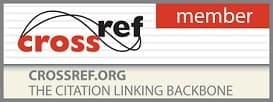
2023, Vol. 6, Issue 2, Part A
A study to evaluate the effectiveness of planned teaching programme on knowledge of 3rd year GNM students on pharmacological and non-pharmacological management of labour pain in selected schools of nursing, Dharwad district, Karnataka
Flavia Lourdes Dass and Sumitra Awwakkanavar
Background of the study: Labour pain is the result of many complex interactions. Labour pain is among the worst imaginable pain that women can experience during their childbearing years. Labour pain management is not only a crucial concern for future mothers but also a great challenge in modern medicine because most of the parturient expect to obtain effective pain relief during delivery.
Objective
1.To assess the knowledge of 3rd year GNM students on pharmacological and non – pharmacological management of labour pain.
2.To evaluate the effectiveness of the planned teaching programme on pharmacological and non – pharmacological management of labour pain on 3rd year GNM students in terms of gain in the knowledge scores.
3.To find an association between pre-test knowledge scores and selected socio-demographic variables.
Methodology: In the present study a Quazi experimental evaluative approach was selected, one group pre-test and post-test design was adopted. The conceptual frame work used for the study was based on Imogene King’s Goal attainment theory. Sample size was 60 3rd year GNM students. The sample was selected by purposive sampling technique. Data was collected by structured knowledge questionnaire and obtained data were analyzed and interpreted in the light of the objectives, using both descriptive and inferential statistics.
Result: Overall result of the study revealed that the level of knowledge of planned teaching programme on Pharmacological and Non-Pharmacological management of Labour Pain in pre-test reveals that all the 60 (100%) subjects had poor, whereas in post-test majority of the subjects, 58(96.66%) had good knowledge and 2(3.33%) had average knowledge. There was a significant gain in knowledge of 3rd year GNM who were exposed to the planned teaching programme.
The calculated paired ‘t’ value (Tcal=50.55) was greater than the tabulated value. Hence, H1 was accepted. This indicated that the gain in knowledge score was statistically at 0.001 level of significance. There was no statistical association between selected socio-demographic variables and their knowledge scores at 0.05 level of significance.
Conclusion: The study concluded that Planned Teaching Programme was more effective for 3rd year GNM students to increase and update their knowledge regarding Pharmacological and Non – Pharmacological management of Labour Pain.
Pages : 07-11 | 382 Views | 185 Downloads

How to cite this article:
Flavia Lourdes Dass, Sumitra Awwakkanavar. A study to evaluate the effectiveness of planned teaching programme on knowledge of 3rd year GNM students on pharmacological and non-pharmacological management of labour pain in selected schools of nursing, Dharwad district, Karnataka. Int J Midwifery Nurs Pract 2023;6(2):07-11. DOI: 10.33545/26630427.2023.v6.i2a.137
Related Journals
Subscription Information
- Nursing Journal Subscription
- Medical Journal Subscription
- Pharmaceutical Journal Subscription
- Medicine Journal Subscription
- Anesthesiology Journal Subscription
- Gynecology Journal Subscription
- Subscription of Nursing Journal
- Community Health Nursing Journal Subscription
- Gynaecological Nursing Magazine Subscription
Research Products





 Other Journals
Other Journals
